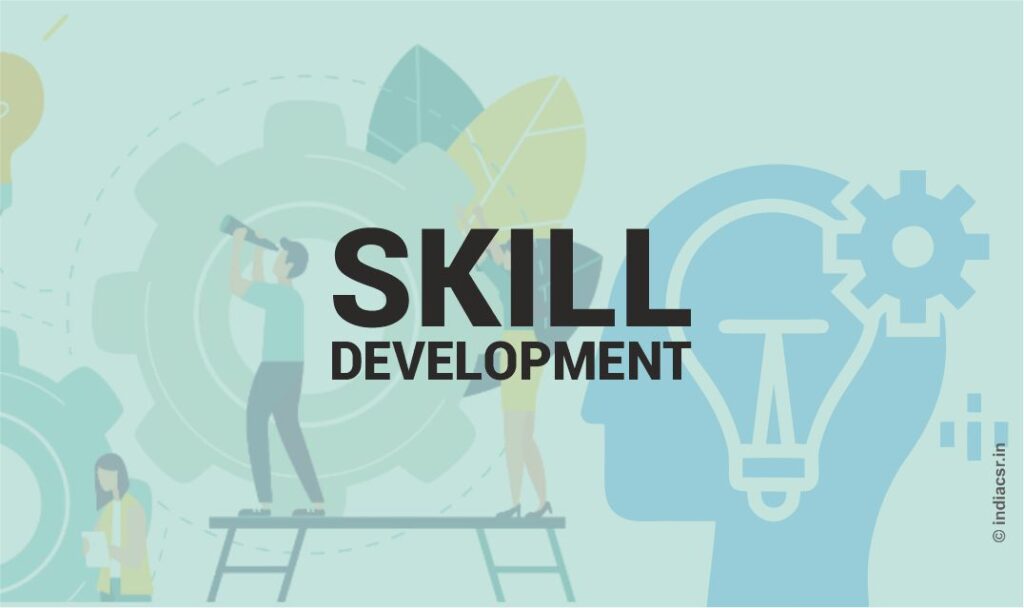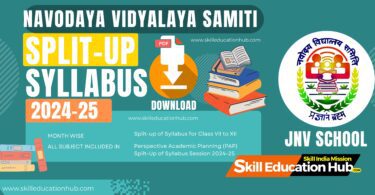It provides a common reference point for the classification and recognition of qualifications, making it easier for employers to understand the skills and knowledge that individuals possess.
When it comes to providing skill-based education under the NSQF, there are a few guidelines that need to be followed. First and foremost, it is important to ensure that the curriculum is aligned with the NSQF levels. This means that the content and learning outcomes should be mapped to the levels specified in the framework, ensuring that students are equipped with the necessary skills for their chosen field.

Another important aspect of providing skill-based education under the NSQF is the need for qualified and competent instructors. Teachers and trainers should have the necessary qualifications and experience to deliver high-quality education and training that meets the standards set by the framework.
In addition to this, it is crucial to provide students with opportunities for hands-on learning and practical experience. This could involve internships, apprenticeships, or on-the-job training, allowing students to apply their skills in real-world settings.
Furthermore, assessment and certification play a key role in the NSQF framework. It is important to have a robust assessment system in place to evaluate the skills and knowledge of students, and to provide them with a recognized certification upon successful completion of their training.
Lastly, collaboration between educational institutions, industry partners, and government bodies is essential for the successful implementation of skill-based education under the NSQF. By working together, these stakeholders can ensure that the curriculum is relevant to industry needs, and that students are equipped with the skills that are in demand in the job market.
National Skills Qualifications Framework (NSQF) to Revolutionize Education and Skill Development
The National Skills Qualifications Framework (NSQF) is a transformative initiative by the Government of India that aims to revolutionize education and skill development in the country. By standardizing skill-based education and aligning it with academic qualifications, the NSQF provides a seamless pathway for individuals to acquire industry-relevant skills and certifications. In this article, we will explore the qualifications and experience that teachers and trainers should possess to deliver skill-based education under the NSQF. We will also discuss effective ways to provide students with hands-on learning and practical experience, as well as how educational institutions can implement a robust assessment system for skill-based education.

The Qualifications and Experience of Teachers and Trainers
To effectively deliver skill-based education under the NSQF, teachers and trainers should possess a combination of qualifications and experience. While academic qualifications in the respective field are essential, practical experience and industry exposure are equally important. Teachers should have a deep understanding of the specific skills they are teaching and should be able to relate theoretical knowledge to real-life scenarios. Additionally, they should constantly update their skills and stay abreast of the latest industry trends and practices.
Moreover, teachers should possess excellent communication and interpersonal skills. Skill-based education often involves practical demonstrations, group activities, and interactive sessions. Teachers should be able to effectively communicate complex concepts and engage students in active learning. They should act as facilitators, mentors, and role models, guiding students in their learning journey and motivating them to develop a strong work ethic and a passion for their chosen field.

Providing Hands-on Learning and Practical Experience
Hands-on learning and practical experience are essential components of skill-based education. They not only deepen the understanding of theoretical concepts but also enhance the application of knowledge in real-world scenarios. Here are some effective ways to provide students with hands-on learning and practical experience:
- Internships and Apprenticeships: Collaborating with industry partners to offer internships and apprenticeships provides students with valuable experiential learning opportunities. They get to work alongside experienced professionals, apply their theoretical knowledge in practical settings, and gain exposure to real-life work environments.
- Simulation Labs and Workshops: Setting up simulation labs and organizing workshops allows students to simulate real-world scenarios and practice their skills in a controlled environment. This hands-on experience helps them develop confidence, problem-solving abilities, and teamwork skills.
- Industry Visits and Guest Lectures: Arranging visits to industries and inviting guest speakers from various sectors provide students with insights into the practical aspects of their chosen field. They get a chance to observe and interact with professionals, gaining valuable industry exposure.
- Project-based Learning: Encouraging students to work on projects that require the application of their skills not only enhances their practical knowledge but also fosters creativity and innovation. Project-based learning allows students to develop critical thinking abilities and problem-solving skills.
- Collaborative Learning Activities: Engaging students in group activities, case studies, and role-playing exercises promotes hands-on learning and encourages collaboration. Students learn from one another, share their experiences, and develop essential teamwork and communication skills.

- What’s the Full Form of NSQF and Why It Matters?
- Everyday Benefits of Understanding NSQF Full Form
- NSQF Full Form Explained Simply for Everyone
- How Does Knowing the NSQF Full Form Help Your Career?
- Common Misunderstandings About NSQF Full Form
- Easy Steps to Learn the NSQF Full Form
- NSQF Full Form: Key Details You Should Know
- Why You Should Care About the NSQF Full Form
- The NSQF Full Form and Its Impact on Education
- Quick Guide to NSQF Full Form for Beginners
Implementing a Robust Assessment System
A robust assessment system is crucial for skill-based education to effectively measure student performance and ensure the quality of education. Here are some ways educational institutions can implement a robust assessment system for skill-based education:
- Competency-based Assessments: Shifting from traditional examinations to competency-based assessments is essential for skill-based education. These assessments focus on evaluating a student’s ability to apply their skills in practical situations rather than rote memorization of facts. They may include practical exams, performance assessments, and project evaluations.
- Industry Validation: Collaborating with industry experts to validate assessment criteria ensures that students are being evaluated on the skills that are most relevant to the industry. This alignment with industry standards enhances the credibility of the assessment system and increases the employability of students.
- Continuous Assessment: Skill-based education requires ongoing evaluation of student progress. Implementing continuous assessments throughout the duration of the course helps identify areas of improvement, enables timely intervention, and provides immediate feedback to students.
- Assessment Tools and Technology: Leveraging assessment tools and technology can enhance the efficiency and effectiveness of the assessment process. Online platforms, virtual labs, and simulation software enable students to demonstrate their skills in a digital environment, while data analytics and AI-based algorithms can provide insights into student performance patterns and learning gaps.
In conclusion, the National Skills Qualifications Framework (NSQF) is set to revolutionize education and skill development in India. Teachers and trainers delivering skill-based education under the NSQF should possess a combination of qualifications, practical experience, and industry exposure. Providing students with hands-on learning and practical experience through internships, simulation labs, industry visits, and project-based learning enhances their skills and prepares them for the workforce. Implementing a robust assessment system through competency-based assessments, industry validation, continuous assessment, and leveraging assessment tools and technology ensures the quality and relevance of skill-based education. By embracing the NSQF, educational institutions can shape the future of India’s workforce and bridge the gap between education and industry requirements.

Questions
- How can educational institutions ensure that their curriculum aligns with the NSQF levels?
- What qualifications and experience should teachers and trainers have to deliver skill-based education under the NSQF?
- What are some effective ways to provide students with hands-on learning and practical experience?
- How can educational institutions implement a robust assessment system for skill-based education?
- What are some strategies for fostering collaboration between educational institutions, industry partners, and government bodies for skill-based education under the NSQF?
- What is the Purpose of the National Skills Qualifications Framework (NSQF) in India?
- How Does the National Skills Qualifications Framework (NSQF) Impact Education and Skill Development in India?
- What are the Key Features of the National Skills Qualifications Framework (NSQF)?
- How Can Individuals Benefit from the National Skills Qualifications Framework (NSQF)?
- What Challenges Does the National Skills Qualifications Framework (NSQF) Face in India?







